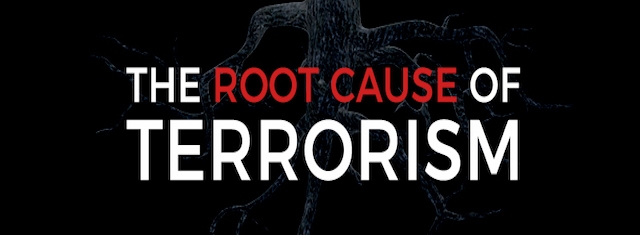Politics
The Roots of Terrorism: Part 1
Dr Anmar Nizar Al-Droubi

Cover article
USPA NEWS -
Terrorism is considered one of the most dangerous criminal phenomenon known to mankind throughout the history, as it represents a serious threat to the security of societies and the political, social and economic entity, in addition to its negative impact on religion and thought. Throughout history, there have been many threats to the security of countries, and one of these dangers is the phenomenon of terrorism. All societies have known the phenomenon of terrorist violence and its practice by the ruling authorities or organizations throughout history.
Terrorism has been practiced at the internal level within a single society by the ruling authority against the classes they rule, or by the majority against the minority or vice versa, or by a group that seeks to resist the oppression of the ruling authority. Terrorism has also been practiced on the external level, which is known as international terrorism. This type of terrorism is embodied by the aggression of powerful countries against the poor nations, as well as the interference of foreign countries in the local conflicts that break out within the same society, and international terrorism has expanded to include multiple countries and societies.
As a consequence, the phenomenon of terrorist violence has become one of the most prominent security and social risks that threaten all humanity, especially with the technological advancements and the scientific revolution that has spread all over the world. The method of managing terrorism became more sophisticated, and terrorist actions became more dangerous and destructive, as it became possible for terrorist groups to use technologically advanced devices to launch their terrorist attacks against countries and societies.
Terrorism is also one of the social phenomenon that arise and grow under special psychological and social factors, and under certain political, economic and cultural conditions, and all of these factors and circumstances share in one way or another the phenomenon of terrorism in the social reality.
Terrorism is also one of the social phenomenon that arise and grow under special psychological and social factors, and under certain political, economic and cultural conditions, and all of these factors and circumstances share in one way or another the phenomenon of terrorism in the social reality.
Therefore, Arab societies have become a fertile environment for the emergence of terrorism, due to the tense political situation, the deteriorating economic level, and the practices of the ruling regimes of tyranny, oppression, banishment, and discrimination between citizens, This led to the spread of poverty and the absence of social justice, which is a basic principle of social stability, under which growth, prosperity and progress are achieved, and in its absence, violence and extremism grow.
As a result of the policy of the ruling authorities and the practices of the influential social elites, social pressures are generated, which lead to psychological disorder and misbehaviour in some individuals resulting in harming themselves and others without thinking about what the results will lead to, so they seek to resort to violence and terrorism as a negative means to escape from bearing the responsibility that requires a positive response by thinking of realistic solutions to problems which face society.
As a result of the policy of the ruling authorities and the practices of the influential social elites, social pressures are generated, which lead to psychological disorder and misbehaviour in some individuals resulting in harming themselves and others without thinking about what the results will lead to, so they seek to resort to violence and terrorism as a negative means to escape from bearing the responsibility that requires a positive response by thinking of realistic solutions to problems which face society.
In Arab Islamic societies, the wrong interpretation of religious texts was one of the main reasons for the growth of the phenomenon of extremism, which is considered one of the most dangerous diseases that kills societies, kills the spirit of tolerance among people, and creates patterns of fanatic minds full of hatred and hatred towards others, because extremism is a social scourge. Intellectual and ethical refers to deviations from positive values, ideas and behaviours in a particular society. On the other hand, it adopts negative values and standards that are foreign to society and it may turn from mere ideas to noticeable actions that the defines of which may reach the point of resorting to the use of violence, with the aim of imposing the principles that extremist ideology strongly believes in on others. The issue may develop to the point of resorting to terrorism for the sake of fighting and martyrdom for the sake of God May liberate their country from occupation, humiliation and disgrace, according to their opinion.
Liability for this article lies with the author, who also holds the copyright. Editorial content from USPA may be quoted on other websites as long as the quote comprises no more than 5% of the entire text, is marked as such and the source is named (via hyperlink).






